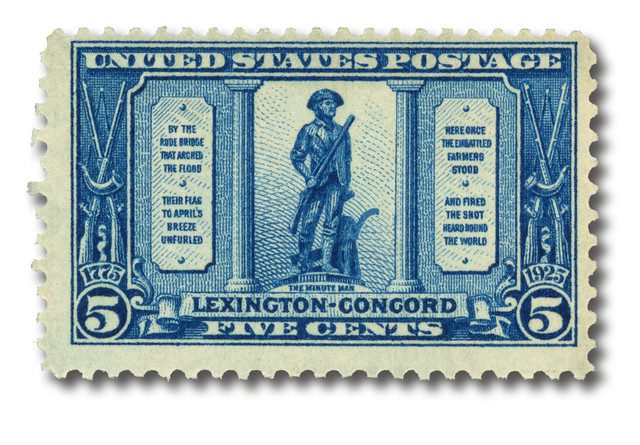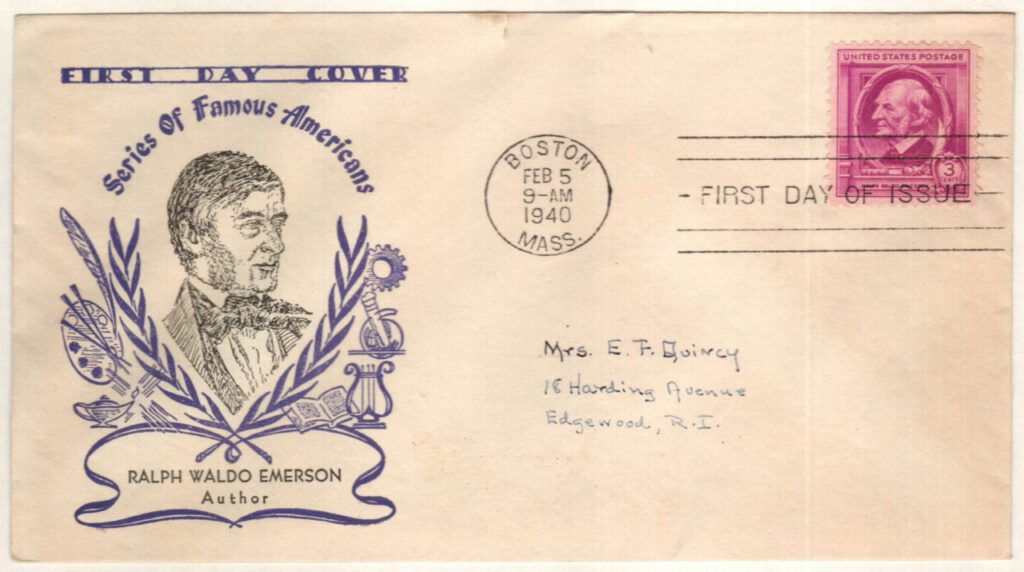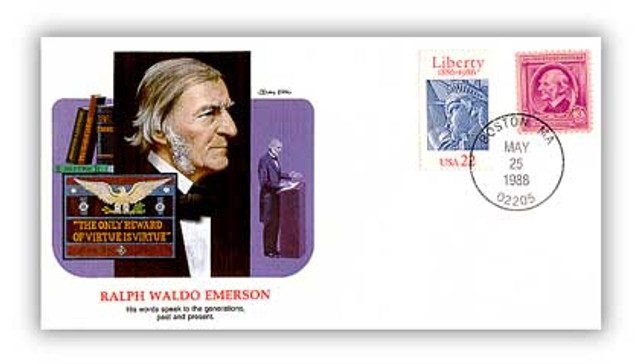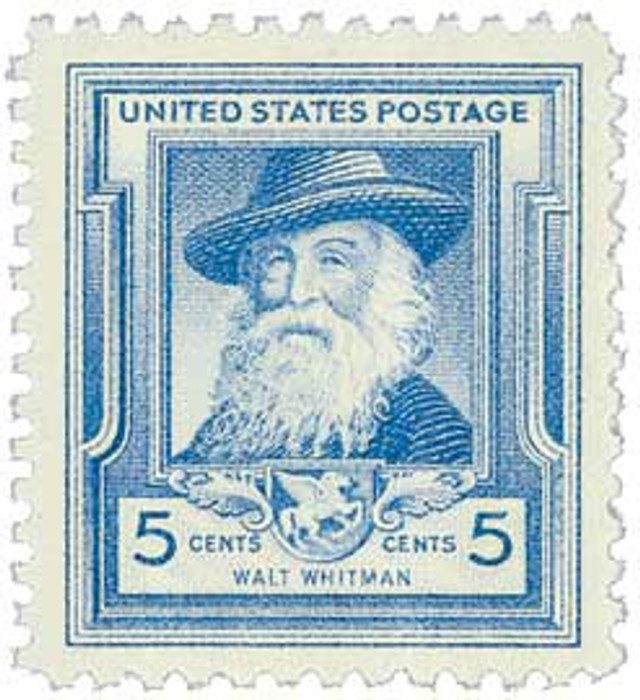Author Ralph Waldo Emerson was born on May 25, 1803, in Boston, Massachusetts. A leader of the Transcendentalist movement, he promoted individualism and was a major influence on generations of thinkers, writers, and poets.
The son of a Unitarian minister, Emerson began his formal education when he was nine. Then at 14, he went to Harvard College where he was made freshman messenger for the president. He also worked as a waiter and occasional teacher to help pay his way.
During his senior year, Emerson began using his middle name and was selected as class poet, tasked with presenting an original poem on Class Day. After graduating, Emerson helped his brother run a school for women and was eventually made schoolmaster. He later attended Harvard Divinity School. At one point, his health began to decline and he traveled south to Charleston, South Carolina, and then to St. Augustine, Florida, where he would write poetry on the beach.
Emerson eventually went back north, got married, and became a junior pastor. Following his wife’s death, Emerson grew to disagree with the church and resigned his position. He left for a European tour in December 1832 and visited Italy, Switzerland, and France. In Paris he went to the Jardin des Plantes (Garden of Plants), which inspired him to change his focus in life from theology to science. Emerson then went to England where he met William Wordsworth, Samuel Taylor Coleridge, and Thomas Carlyle.

Returning home in October 1833, Emerson embarked on a new career as a lecturer. He gave the first of his 1,500 lectures that November on the topic, “The Uses of Natural History,” inspired by his visit to Paris. This lecture would also be the basis for his first published essay, “Nature.”
In September 1836, Emerson met with Frederic Henry Hedge, George Putnam, and George Ripley to arrange for regular meetings of like-minded men (and eventually women). This was the start of the Transcendental Club, which would be the center of the Transcendentalist movement. The beliefs of the movement included a rejection of society in favor of self-reliance and independence, and – as Emerson put it – “an original relation to the Universe.”
The following year Emerson delivered a now famous speech at Cambridge known as “The American Scholar.” In it he called for Americans to establish their own writing styles, apart from those of Europe. He then published the talk at his own expense and it sold all 500 copies in one month. That same year, Emerson befriended Henry David Thoreau and encouraged him to keep a journal, as he did, which was a major inspiration for the fellow writer.
In the early 1840s, Emerson served as editor of The Dial, the Transcendentalist journal, and published his second book, Essays. It included his famed essay, “Self-Reliance,” and helped him to earn some international fame. He spent much of the decade giving lectures and visited the British Isles and Paris shortly after the French Revolution of 1848.
Emerson was a staunch abolitionist who welcomed John Brown into his home before his famous raid. Emerson voted for Lincoln in 1860, but was disappointed when he publicly favored preserving the Union over eliminating slavery. Emerson became more vocal once the war began, giving a lecture at the Smithsonian on January 31, 1862, in which he declared, “The South calls slavery an institution… I call it destitution… Emancipation is the demand of civilization.”
Emerson’s health began to decline in 1867, after which time he wrote less and less. In 1871 he traveled West on the Transcontinental Railroad. Along the way he met Brigham Young and John Muir. Muir convinced him to visit Yosemite for a month. Emerson was amazed at the views and named a giant sequoia Samoset, after the first American Indian to have contact with the Pilgrims. Emerson said that if he were a younger man, he would have stayed for good.
In his later years, Emerson’s memory was poor, which led him to withdraw from public appearances. He suffered from pneumonia and died on April 27, 1882.
Click here to read some of Emerson’s work.
| FREE printable This Day in History album pages Download a PDF of today’s article. Get a binder or other supplies to create your This Day in History album. |
Discover what else happened on This Day in History.
Do you know what classic horror novel published in 1897 is considered one of the most famous pieces of English literature? Check back tomorrow for the full story.





